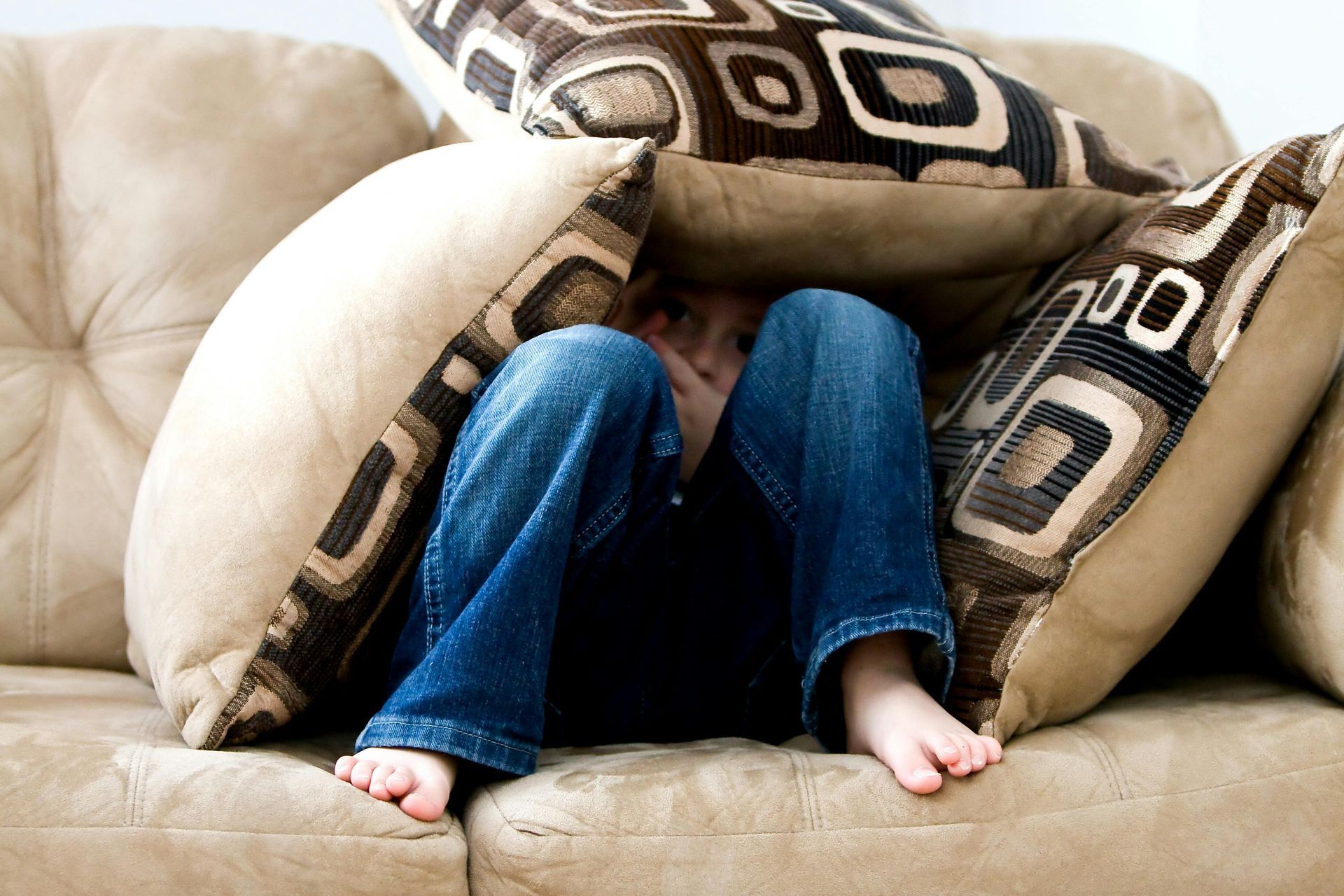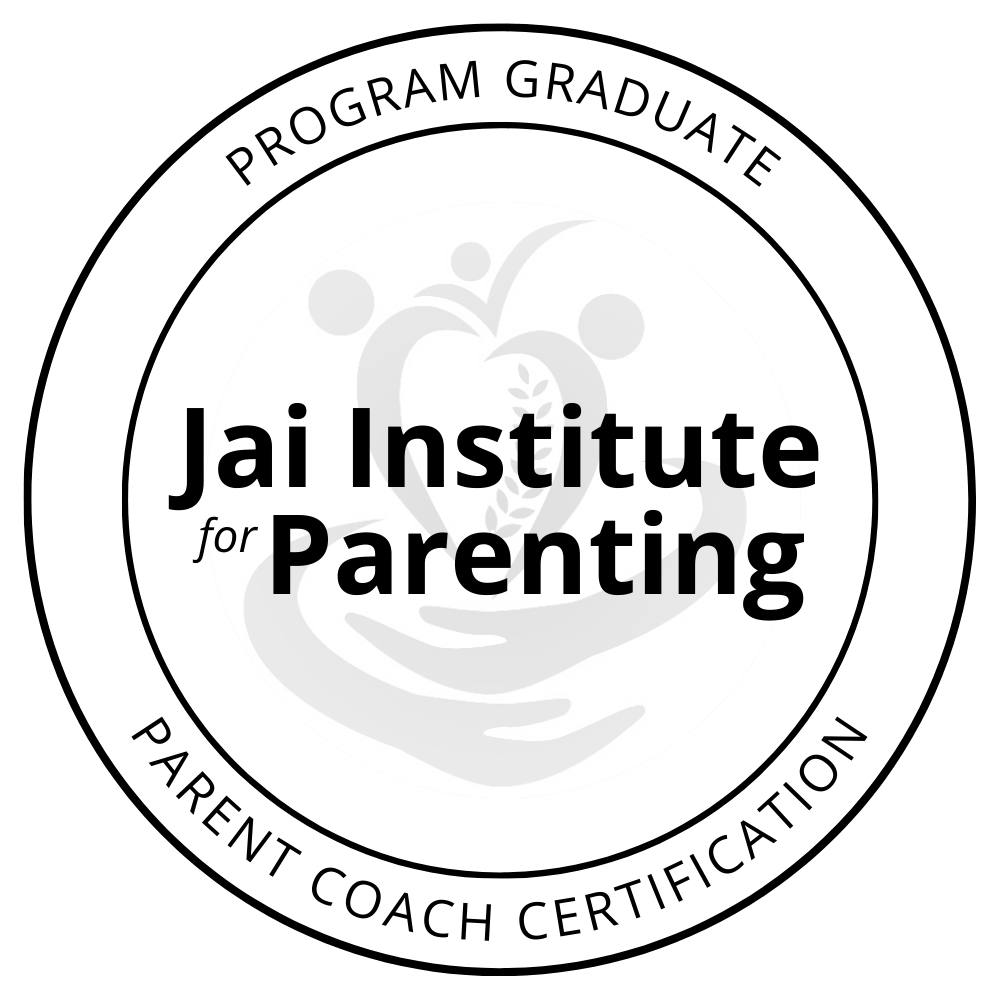Anxiety is the Thief of Joy
Natalie Raby • March 18, 2025
I can feel my anxiety bubbling up like a toxic sludge.
I've learned to recognize the signs of my anxiety: feeling like I have pent up energy without direction or purpose, impatience with others, persistent feelings of failure, a fixed mindset, and intense pressure to make it "all better" right now.
Thoughts racing through my mind during these times sound like, "you just don't have what it takes..." or "if only you (insert unrealistic expectation) you wouldn't feel like this."
Because I have these feelings coursing through my body and these negative thoughts racing through my mind, I find myself behaving in ways that are not typical for me. I feel very impatient with my kids, like their stories take forever and I have no patience to listen. I am irritated at my husband for no reason and there's nothing he can do to help. I place wildly unrealistic expectations on myself as if I'm looking for ways to add to the self-loathing. It's a recipe for disaster and I'm my own worst enemy!
There's good news! I have learned to recognize what's happening and read the signs. My formal education in the field of mental health, my experience helping others with their mental health, and the help I've gotten from my amazing therapist have helped me identify that my thoughts influence my feelings which influence my behavior. And here's the better news, I have learned ways to identify what I can do to stop that spiraling in its tracks. And you can too!
Parents never get a day off so when we are experiencing mental health challenges it can really impact how we show up for our kids. We have a responsibility to them to learn ways to regulate our emotions so we can show up as the safe, dependable, supportive caregiver they deserve.
So what can we do to make things better? For me, it's all about self-care.
- Pent up energy with no purpose? Talk a walk, exercise, go run some errands
- Impatience with others? Use grounding exercises that help focus on the present moment: body scans, tapping, stretching, deep breathing, the list could go on and on
- Feelings of failure? Write a gratitude list, make a to-do list of easy tasks I know I can accomplish (think dishes, restocking toilet paper in the bathroom, etc.)
- Fixed mindset? I take myself back to this very day last year and take stock of everything that has improved or ways I have grown
- Intense pressure to make it all better? Do something that will make something better like cleaning out the junk drawer, organizing the bathroom cabinet, making a special treat for the kids
Maybe you're thinking, "well, that's nice, but I don't consider those things self-care." Self-care looks different for each of us. Self-care is simply prioritizing your needs so you can take care of yourself. But self-care can look like going to bed early, reading, taking an "everything shower" (IYKYK), enjoying extra time on the couch with a cup of coffee, or communicating your need to take care of yourself to your partner.
If you're anything like me, the act of self-care can feel selfish. My parents modeled never taking care of themselves very well and always prioritizing others' needs before their own. This leads to burnout and ends up hurting the people we live with. We can be proactive and choose to take care of ourselves well so we can take care of others without feeling drained. The more we pour into self-care and being attuned with our feelings, the more attuned we can be to our thoughts, and the more intentional we can be with our behavior. This allows us to take time for self-care and avoid spewing our toxic sludge onto our kids and partner.
What can you do to prioritize self-care more regularly?

I think this is pure POPPYCOCK! Not only is it unattainable, it's unsustainable and unnecessary. It isn't what our kids need from us, and it shouldn't be what we expect of ourselves. In parenting, the "hustle culture" leads to devastating consequences like burnout, emotional dysregulation, insecure attachment, and loss of connection. In short, it's a recipe for disaster! Perfection is an illusion. They don't need us to do all the things all the time. They need us to be present, connected, well-rested, playful, and emotionally regulated. We need us to be all these things too! The "hustle culture" pops up in the summer with parents rushing their kids from one carefully curated Instagram-worthy adventure to another. It pops up in the multiple after-school activities that leave little to no downtime for anyone to rest and connect. It's completely okay to keep it simple. I've got 3 things for you to consider if you've found yourself in the "hustle culture" and can't find the exit... Providing downtime for our kids to feel bored is important. Boredom provides opportunities to foster creativity, problem-solving, and emotional regulation. Family mealtimes are important. Sharing meals provides opportunities to foster communication, model manners and etiquette, and builds connection. Secure attachment with your kids relies on our ability to spend quality time with them. Secure attachment is all about relationship and connection. We have to spend quality time with them each day to ensure a secure attachment. Unfortunately, the "hustle culture" is reinforced in our society, but we can choose to say POPPYCOCK and exit! I encourage you to reflect on how you spend your days. Do you and your kids have downtime to get bored, eat together, and foster secure attachment? If not, I encourage you to look for ways to do less so you can find joy in connection.

The sudden cliff dive from consistent daily routines, stimulation, and socialization can take a toll on children and parents alike. The pressure to take grand vacations, make grand plans, and have a grand time doing it all can feel suffocating. Social media would have us believe that a breezy summer is as easy as creating a cute chart of activities, organizing some crafts, and letting them play outside. The truth for many of us is that summer is filled with stress, unfulfilled expectations, and disappointment. So, if the answer isn't a chart and some stuff to do, what's the solution to this impending doom summer brings? 1. Prioritize self-care - maybe you're surprised I listed this as the first thing, but let's be honest...if we aren't taking care of ourselves, we won't have the physical or mental energy to navigate tricky situations and all the emotions that go along with it. Set time aside every day. Yes! Every day to do something just for you. Summer is for you to enjoy as well! 2. Practice regulating your emotions - when we regulate our emotions, we are modeling for our children while keeping our lids on and our tempers calm. Use your strategies like belly breathing, sucking on an ice cube, or shaking out your body to release the emotion and return to regulation. **Read my blog post, Dysregulation Station, for more information. 3. Collaborate - make summer fun everyone's job. Have a family meeting to hear from them what they hope to do this summer. You might hear some wildly grand and unrealistic plans, it's a great opportunity to collaborate on how you could take the grand and make it realistic. Here's one of my favorites from my 13-year-old son: "I want to dig a 12 ft. x 12 ft. pit in our backyard to create an underground bunker." Sounds so cool, right? Unfortunately, having a giant pit in our backyard is not safe, so we collaborated to come up with something similar that would be safe. He's decided he'll attempt to create a fort using fallen logs from the forest and some old pallets. 4. Keep it simple - a fun summer doesn't have to be grand, it can be simple and cheap! We use theme days to keep things simple, predictable, and fun. Think "Movie Monday" where you watch a movie with dinner, "Takeout Tuesday" where you eat out and no one has to do dishes, or "Water Wednesday" where you set up the slip-n-slide or go to the community pool, the possibilities are endless. 5. Douse things in playfulness - not just a sprinkle, but a liberal dousing is called for! Take the summer to lean into fun and play. Let the to-do list loosen to prioritize connection. Tap into your inner child and aim to giggle and be silly as much as possible. A few summers ago, we surprised our children with dessert before dinner. The kids thought we had lost our minds, but they loved it and still talk about it. It's definitely in the plans for this summer! Play tag, go on bike rides, have dance parties, and make having fun with your children your highest priority. If you prioritize your needs, practice emotional regulation, collaborate as a family, and keep it simple and playful, your summer will be full of joy, connection, and fun!

Before we dig in, I want to set some things straight... 1. Lying is a behavior. Your child is not a liar, but they may struggle with lying behavior. Too often, we label a child based on the undesirable behavior we see, but that's just name-calling in my opinion. If we know that all behavior communicates an unmet need, then lying communicates your child's unmet need. Name-calling or labeling won't help you determine what drives the behavior. 2. Lying can start as early as two or three years old. This is good news! It's a developmental milestone that demonstrates a child's ability to comprehend that others can't read their mind. Toddlers are generally lying to avoid punishment or to communicate wishful thinking. 3. How a parent responds to lying can determine whether lying is simply a developmental milestone or the behavior continues. I know this is hard to come to terms with, but we have just as much to do with the lying as the child does. Punishment doesn't teach , it only instills anxiety, fear, and shame. And if a child is anxious or fearful of their parent's response, they'll be more likely to lie again! I think my lying behavior grew from a very active imagination and lots of wishful thinking. Stories have been told about me lying from a very young age. I lied about anything and everything. As I got older, my lying grew to be more than mere wishful thinking and imagination, it became a way to avoid punishment. I remember the shame, guilt, and self-hate that came from my lying behavior. My parents didn't have the understanding or skills to use discipline instead of punishment. So the cycle continued. I would do something, my parents would get mad, and I would be afraid and anxious, so I would lie to avoid punishment. I came to believe I was a liar, it was a label I internalized. I am proud to say I am no longer a lying liar who lies, although I know now I was never a liar. Lying was a defense mechanism I used to manage my fear and anxiety about my parents' behavior and avoid punishment Maybe you're wondering what you can do to avoid causing fear and anxiety in your child. I have some things you can do instead. Let's use a recent example from one of my children: They went to play at a friend's house. They left their friend's house to play at another friend's house about a mile away. The expectation in our family is to check in with parents before changing the plan. 1. Get curious - when your child tells a lie, get curious, not upset Think, "What is my child's lie telling me?" Is it wishful thinking? Is it avoidance? I thought, "Why didn't my child tell me when I picked them up?" 2. Don't use entrapment - don't ask your child a question you already know the answer to. Instead of saying, "Did you walk to A's house after I dropped you at B's house?" I said, "You walked to B's house without checking in first. Why didn't you tell me when I picked you up?" 3. Make it safe to be honest - allow children to make mistakes and appreciate their honesty. We also have to model what we expect, so be honest and take responsibility for mistakes "Thank you for telling me. We all forget what we need to do sometimes. We want you to be safe, which is why you have to check in before changing the plan." 4. Collaborate to find solutions - work together with them to find a way to make things right Here are the solutions we found: Option 1) when they play at a friend's house, they will have set check-in times Option 2) we will communicate with the friend's parent that they are not allowed to change locations. **It's important to consider your child's age and ability when determining solutions. This is not a great solution for a younger child, but for this middle schooler, it feels like a good fit. **Consult with your pediatrician if lying feels like a behavior bigger and more intense than what is typical. Trust your gut! Here are 6 takeaways I hope this post has heartened you with: 1. Lying in children is normal and expected 2. Lying is a behavior, and all behavior communicates needs 3. Punishment is not the answer to lying behavior (or any other behavior) 4. Be curious about why they are lying, but don't interrogate 5. Make it safe to tell the truth and model honesty 6. Work with your child to find a solution

